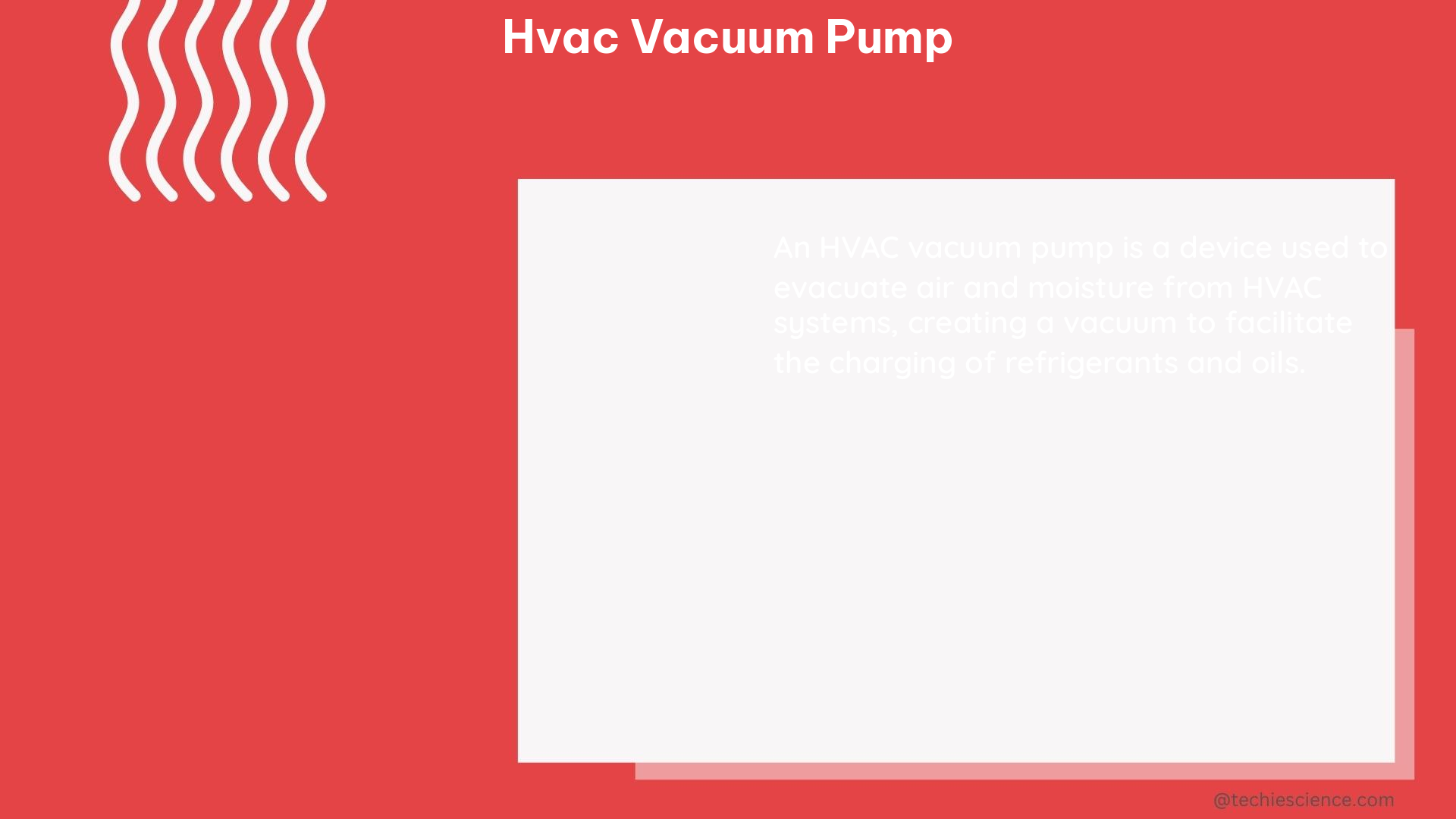When it comes to maintaining and servicing HVAC systems, the vacuum pump plays a crucial role in ensuring the system’s proper operation. This comprehensive guide will delve into the intricacies of HVAC vacuum pumps, providing you with the technical knowledge and practical insights to ensure your vacuum pump is operating at its best.
Monitoring the Micron Gauge Reading
The micron gauge is the primary tool for testing the performance of an HVAC vacuum pump. A properly functioning pump will continue to pull down to its lowest point, typically less than 200 microns, with near-perfect pumps achieving levels below 50 microns. However, if the system is unable to reach below 500 microns and the reading bounces back and forth, it could indicate the presence of contaminants, moisture, or leaks in the piping.
In the case where the system cannot reach the desired vacuum level, it is essential to take the following steps:
-
Perform a Triple Evacuation: Conducting a triple evacuation, which involves evacuating the system three times, can help remove any remaining contaminants or moisture that may be hindering the vacuum pump’s performance.
-
Check for Leaks: Carefully inspect the manifold, hoses, and connections for any potential leaks that could be preventing the system from reaching the desired vacuum level.
-
Perform a Standing Hold: Conduct a standing hold test to observe any changes in the vacuum level over time. This can help identify any issues with the system’s ability to maintain a stable vacuum.
Technical Specifications of HVAC Vacuum Pumps

The technical specifications of an HVAC vacuum pump include its capacity, rated in cubic feet per minute (CFM) or cubic meters per hour (CM/H), and the vacuum level it can achieve. As the vacuum level increases, the pump’s efficiency decreases, and it’s essential to understand the flow rate against vacuum level graph provided by the manufacturer.
Pump Capacity
The capacity of an HVAC vacuum pump is typically measured in CFM or CM/H. A higher capacity pump can evacuate a system more quickly, making it suitable for larger HVAC systems or applications that require a faster evacuation process. However, it’s important to note that the pump’s efficiency will decrease as the vacuum level increases.
Vacuum Level
The vacuum level that a pump can achieve is another critical specification. High-performance pumps can reach vacuum levels below 50 microns, while more standard pumps may have a maximum vacuum level of around 200 microns. The specific vacuum level required will depend on the HVAC system’s size and the application.
Flow Rate vs. Vacuum Level
Understanding the relationship between the pump’s flow rate and the vacuum level is crucial. As the vacuum level increases, the pump’s efficiency and flow rate will decrease. Manufacturers typically provide a flow rate against vacuum level graph to help users select the appropriate pump for their specific needs.
Choosing the Right HVAC Vacuum Pump
When selecting an HVAC vacuum pump, there are several factors to consider:
-
Vacuum Level and Air Volume: Determine the required vacuum level and air volume for your specific HVAC system or application. This will help you choose a pump with the appropriate capacity and vacuum capabilities.
-
Budget: HVAC vacuum pumps can vary significantly in price, from affordable options for DIY users to high-end professional-grade pumps. Consider your budget and the intended use of the pump when making your selection.
-
Maintenance and Durability: For professional users, having multiple pumps tailored to different tasks can be beneficial. Used pumps can be a cost-effective option, especially for those who can properly maintain them. However, for critical commercial applications, buying new pumps is generally recommended to ensure reliability and performance.
-
Accessories and Features: Some HVAC vacuum pumps come with additional features, such as built-in micron gauges, oil-less operation, or automatic shut-off mechanisms. Consider which accessories and features are most important for your specific needs.
By understanding the technical specifications, testing procedures, and selection criteria for HVAC vacuum pumps, you can ensure that your HVAC system operates at its best, maximizing efficiency and minimizing downtime.
Reference:
- Eco Renovator Forum Thread
- HVAC-Talk Forum Thread
- Explore Composites Article on Buying a Vacuum Pump

The lambdageeks.com Core SME Team is a group of experienced subject matter experts from diverse scientific and technical fields including Physics, Chemistry, Technology,Electronics & Electrical Engineering, Automotive, Mechanical Engineering. Our team collaborates to create high-quality, well-researched articles on a wide range of science and technology topics for the lambdageeks.com website.
All Our Senior SME are having more than 7 Years of experience in the respective fields . They are either Working Industry Professionals or assocaited With different Universities. Refer Our Authors Page to get to know About our Core SMEs.